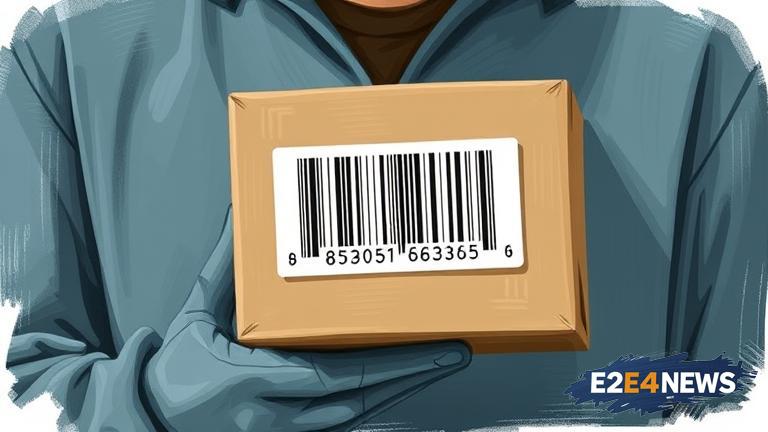In recent years, the way packages are delivered has undergone a significant transformation. Gone are the days of manually tracking packages using numerical identifiers. Today, barcodes have become the norm, allowing for faster and more efficient delivery processes. This change, however, has far-reaching implications that extend beyond the realm of logistics. It speaks to a fundamental shift in how we perceive and interact with personal identity. The use of barcodes in package delivery underscores the increasing reliance on digital data and automated systems. As a result, individuals are no longer just numbers; they are now barcodes, reducible to a series of digits and scans. This phenomenon has sparked intense debate about the consequences of such a shift. Proponents argue that barcode technology enhances convenience, accuracy, and speed, making it an indispensable tool in modern commerce. On the other hand, critics raise concerns about privacy, security, and the potential for exploitation. The proliferation of barcode scanning has also led to a surge in data collection, with companies amassing vast amounts of information about consumer behavior and preferences. This data is then used to create detailed profiles, often without the individual’s knowledge or consent. Furthermore, the reliance on barcodes has significant implications for personal autonomy and agency. As individuals become increasingly dependent on digital systems, they risk losing control over their personal information and identities. The consequences of this trend are multifaceted and far-reaching, affecting not only individuals but also communities and societies as a whole. For instance, the widespread adoption of barcode technology has led to the creation of new industries and job opportunities, while also exacerbating existing social and economic inequalities. Moreover, the use of barcodes in package delivery has raised important questions about the role of technology in shaping human relationships and interactions. As we continue to navigate this complex landscape, it is essential to consider the ethical implications of barcode technology and its impact on personal identity. Ultimately, the shift towards barcode identification in package delivery serves as a catalyst for a broader conversation about the future of human interaction in a digital age. The rise of barcode technology has also sparked discussions about the potential for alternative forms of identification, such as biometric data or digital passports. As the world becomes increasingly interconnected, it is crucial to develop a nuanced understanding of the complex interplay between technology, identity, and society. By examining the implications of barcode technology in package delivery, we can gain valuable insights into the evolving nature of personal identity and the consequences of a digitized world. The impact of barcode technology on personal identity is a multifaceted issue, with various stakeholders holding different perspectives. While some view it as a convenient and efficient means of identification, others see it as a threat to individual autonomy and privacy. As the use of barcode technology continues to expand, it is essential to engage in ongoing discussions about its implications and to develop strategies for mitigating its negative consequences. In conclusion, the shift towards barcode identification in package delivery represents a significant turning point in the evolution of personal identity. As we move forward in this digital age, it is crucial to prioritize transparency, accountability, and ethical considerations in the development and implementation of barcode technology. By doing so, we can ensure that the benefits of this technology are equitably distributed and that its negative consequences are minimized. The future of personal identity in a digitized world is complex and multifaceted, and it will require ongoing dialogue and collaboration to navigate its challenges and opportunities. The rise of barcode technology has significant implications for various aspects of society, including commerce, governance, and individual relationships. As we continue to explore the possibilities and consequences of this technology, it is essential to adopt a nuanced and multidisciplinary approach, considering the interplay between technological, social, and economic factors. By examining the impact of barcode technology on personal identity, we can gain a deeper understanding of the complex dynamics shaping our world and develop strategies for creating a more equitable and just society.
